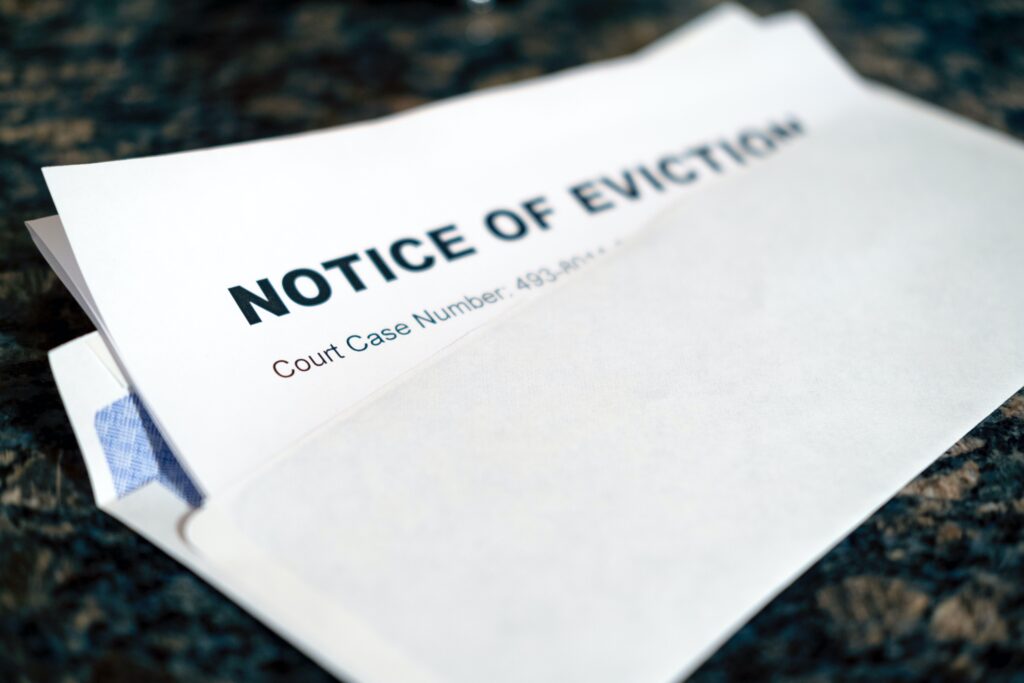Losing your last surviving parent can be an emotionally wrenching experience. On top of that grief, you may also face a hefty inheritance tax bill if their estate exceeds current nil-rate band thresholds. However, unique tax rules apply in cases where inheritance stems from the estate of your second parent to pass away. This guide covers the specific implications around inheritance tax when receiving assets after the death of a second parent of a pair that were married or in a civil matrimony. To understand how this all works we first must understand what happened when the first parent died.
Summary
When the first parent died, the full estate went to the surviving spouse tax free.
Upon death, each person has a standard tax-free amount that they can transfer to others. Only after this amount is used, do levies normally kick in against the remainder.
The exception is when there is a surviving spouse, since a surviving spouse will inherit everything automatically.
The standard tax-free amount that applies to non-spouses is called the Nil-Rate Band (NRB). When your first parent died, it’s considered that the nil-rate band of the deceased was never used, because everything went to a surviving spouse. Therefore, when the second parent dies, the total inheritance has two nil-rate bands combined, effectively doubling the tax-free allowance for the entire estate.
In addition, if the beneficiary of the estate, after the second parent dies, is a child or grandchild, there is an extra tax-free bonus allowance thrown on top of the double NRB. This extra tax-free amount is called the ‘residence nil-rate band’ (RNRB)
Let’s now dive into all this in more detail:
The standard nil-rate band (NRB)
The standard Nil-Rate Band (NRB) in the UK is the threshold below which no inheritance tax (IHT) is due on an estate when someone dies. For the 2023/2024 tax year, the standard NRB is set at £325,000.
This means that if the total value of a person’s estate (which includes property, money, investments, and other assets) is £325,000 or less, no inheritance tax will be charged on that estate. Any value above this threshold is typically taxed at a rate of 40%.
Key Points:
- Amount: £325,000 for the 2023/2024 tax year.
- Transferability: If a person’s estate is passed to a spouse or civil partner, and the full NRB isn’t used, the unused portion can be transferred to the surviving spouse or civil partner, effectively doubling the NRB to £650,000 upon their death.
- Tax Rate Above NRB: 40% on the amount exceeding £325,000.
- Exemptions: Certain gifts and transfers made before death, as well as charitable donations, may reduce the taxable value of the estate.
The NRB has been fixed at £325,000 since 2009, and it’s expected to remain at this level until at least 2026.
The residence nil-rate band (RNRB)
The Residence Nil-Rate Band (RNRB) is an additional inheritance tax (IHT) allowance in the UK, specifically designed to help individuals pass on their family home to direct descendants, such as children or grandchildren, without incurring inheritance tax on a portion of the estate’s value.
Key details about the RNRB:
- Amount:
- For the 2023/2024 tax year, the RNRB is set at £175,000 per individual.
- This is on top of the standard Nil-Rate Band (NRB) of £325,000.
- Eligibility:
- The RNRB applies when a person leaves their main residence to direct descendants, which includes children (biological, stepchildren, adopted, or foster) and grandchildren.
- If the estate does not include a residence being passed to direct descendants, or if it is left to someone else, the RNRB cannot be used.
- Transferability:
- Like the standard NRB, the RNRB is transferable between spouses or civil partners. If the first spouse or civil partner dies without using their full RNRB, the unused portion can be transferred to the surviving spouse.
- This means that when the second spouse or civil partner dies, their estate can potentially benefit from up to £350,000 of RNRB (i.e., £175,000 from each spouse).
- Tapering:
- The RNRB is reduced (tapered) for estates with a total value exceeding £2 million. For every £2 over this threshold, the RNRB is reduced by £1. This means that for very large estates, the RNRB may be partially or entirely lost.
- Potential Total Exemption:
- When combined with the standard NRB, a person can pass on up to £500,000 (£325,000 NRB + £175,000 RNRB) of their estate tax-free.
- For married couples or civil partners, this amount can be doubled to £1 million if both the NRB and RNRB are fully utilised and transferred.
What do children of a second deceased parent inherit tax free?
if the estate was passed from one parent to another, then after the death of the second parent, (assuming both were married or in a civil partnership), the tax exemption equates to (2 x RNRB) + (2 x NRB) = up to £1000000 tax free inheritance.
Breaking it down:
- Nil-Rate Band (NRB):
- The standard NRB for an individual is £325,000.
- If the first spouse did not use any of their NRB (because, for example, their entire estate passed to the surviving spouse, which is IHT-exempt), then 100% of their NRB can be transferred.
- Upon the second spouse’s death, their estate can use both their own NRB (£325,000) and the transferred NRB from their spouse (£325,000), totaling £650,000.
- Residence Nil-Rate Band (RNRB):
- The RNRB for an individual is £175,000.
- If the first spouse did not use any of their RNRB (perhaps because they didn’t own a qualifying residence or passed it directly to their spouse), then 100% of their RNRB can also be transferred.
- Upon the second spouse’s death, their estate can use both their own RNRB (£175,000) and the transferred RNRB from their spouse (£175,000), totaling £350,000.
Total potential exemption:
- NRB: £325,000 (first spouse) + £325,000 (second spouse) = £650,000
- RNRB: £175,000 (first spouse) + £175,000 (second spouse) = £350,000
- Combined Total: £650,000 (NRB) + £350,000 (RNRB) = £1 million
This means that the estate of the second spouse can be exempt from inheritance tax on up to £1 million of its value, assuming all conditions are met for both the NRB and RNRB.
Gifts, reliefs and other considerations
Beyond the special combined nil-rate band stacking opportunities when your second parent passes away, a few other additional rules and factors around inheritance tax warrant close consideration as well during this transition period:
Taper relief
If your second parent had gifted away significant assets or property during their final years, you may be able to claim taper relief reducing the inheritance tax rate below 40% for those specific gifts if certain conditions are met.
Deed of variation
Similarly, you and your family may consider executing a Deed of Variation after inheriting to legally re-allocate portions of the assets in a more tax-efficient manner if beneficial.
Inheritance tax instalments
If you’re facing a substantial inheritance tax bill exceeding liquid funds after your second parent passes, you may qualify for an extended payment plan allowing the amount owed to HMRC paid (with interest) over 10 annual instalment periods.
Business or farm relief
Don’t overlook potential inheritance tax relief on business assets, farm property, or unlisted company shares/securities potentially included in the estate you’re inheriting. Certain qualifications can discount those valuations by 50% or even 100%.
Charitable giving
Any portions of assets inherited that get donated or transferred to qualifying charities avoid all inheritance tax entirely. This can make dispersing percentages of the estate to philanthropic causes a savvy tax planning strategy.
Professional valuations
Whenever facing inheritance scenarios from a parent’s estate, comprehensive professional valuations on all property assets included become paramount. Overpaying inheritance tax based on inaccurate property values is a costly mistake easily avoidable through due diligence appraisals upfront.
While the loss of your last parent is hugely impactful from an emotional perspective, that milestone event also introduces special inheritance tax considerations you need to be well-prepared to navigate from a financial planning standpoint.
Whether it’s ensuring you maximise all exemption portability opportunities or reviewing other available inheritance tax relief provisions – working alongside qualified advisors through this transition helps ensure you honour your parents’ final wishes as intended while keeping costs managed.
Selling your property to pay for inheritance tax
At Property Rescue, we understand the time sensitivity around settling inheritance tax bills after the passing of your second parent. That’s why our streamlined cash purchase process is perfectly suited for these situations.
We’ll make you a fair market offer to buy your inherited property as-is, with the ability to exchange contracts in as little as 48 hours. This allows you to quickly access cash tied up in property and pay the HMRC inheritance tax amount due promptly, without the delays.
Our transparent service saves you from unnecessary costs and headaches so you can focus on more important family matters during this difficult time. Get a free, no-obligation quote to see how much your property is worth.
Summary: Inheriting a property
Inheriting assets once your second parent passes away brings unique inheritance tax complexities into focus. However, special spousal transfer provisions for combined nil-rate bands also present significant opportunities to minimise tax burdens when navigated properly with professional guidance focused on protecting your family’s legacy.








